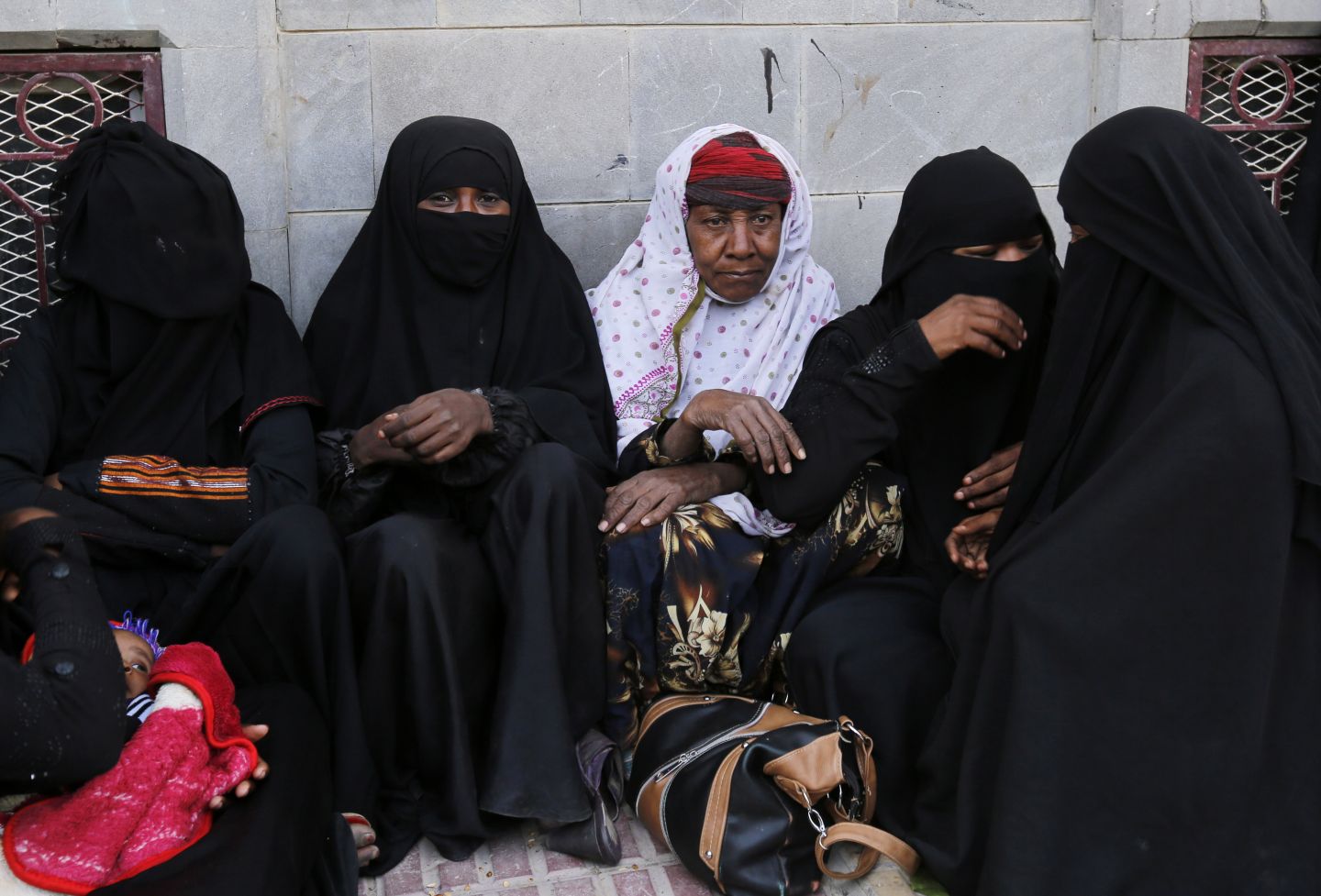
Yemen: Enhancing Political and Civil Rights of the Muhamasheen Community
We regret that this programme was terminated due to adverse conflict conditions in Yemen. MRG remains committed to protect and promote the rights, equal citizenship, and combat discrimination against minorities in Yemen. Please see here a summary of what we have achieved within the limited circumstances produced by the quick escalation of the situation in Yemen. We regret that due to the forced early closure of this project mid-way through the planned work, no evaluation was carried out.
Duration: Originally February 2015 until January 2017; partially suspended in September 2015; fully suspended in June 2016, terminated in July 2017
Countries: Yemen (governorates of Sana’a, Ta’izz, Lahij, Abyan and Al Hudaydah)
Communities: Muhamasheen communities
What was this programme about?
The aim of this programme was to protect and promote the civil and political rights of the Muhamasheen in Yemen by tackling issues of discrimination and equal citizenship from a rights-based perspective and on a social level. More specifically, this programme sought to:
- Ensure that any future political and legal process or reform would be inclusive of the issues, rights, and concerns of the Muhamasheen, both at national and local levels, by increasing local participation and dialogue.
- Promote greater civil and political participation of the Muhamasheen community by strengthening the capacities of Muhamasheen youth and activists to challenge human rights abuses.
Why did we deliver this project?
The Al-Muhamasheen in Yemen are a visible minority who suffer from caste-based discrimination and have long been characterised by deep-seated poverty and suffered severe and regular human rights violations, acts of discrimination and marginalisation. While the Muhamasheen face discrimination at both the institutional and societal level in Yemen, Muhamasheen communities, their leaders and the organizations representing and working with these communities still lack knowledge and capacity to effectively challenge discrimination through legal channels and advocacy. Therefore, this programme aimed to empower these communities and their representatives with tailored knowledge of their rights as well as the available legal remedies and other strategies which they could use to challenge the discrimination they face and demand their rights. At the time of designing the project, Yemen’s National Dialogue Process was ongoing, and was identified as an opportunity to push for the rights of the Muhamasheen amidst processes of political and legal reform in the country.
What did we do?
The production of a 20-page report entitled “Even war discriminates: Yemen’s minorities, exiled at home” focused on the situation of minorities and specifically the Muhamasheen. This report was a result of research and documentation to which various activists, including the All Youth Foundation, contributed. This was followed by an increase in international advocacy efforts to use the report findings to inform and influence various stakeholders, especially during the 31st Session of the Human Rights Council in March 2016.
To increase civil and political participation of Muhamasheen, we organised a training in Hodeida, gathering 14 community activists, including women and men, from both Hodeida and Taiz. The training was three days long and focused on human rights monitoring and documentation skills.
Extensive networking was conducted during the period of suspension, including attendance of various meetings in London relating to Yemen, organised by various institutions including the Overseas Development Institute, the British-Yemeni Society, and private with NGOs such as Oxfam, Médecins sans Frontières. In addition to meetings with various researchers and activists working on Yemen.
The project aimed at increasing the involvement of Muhamasheen in local authorities/ councils, as well as, strategic litigation and in-country advocacy. However, beyond contact with local offices of humanitarian agencies, this became impossible due to conflict escalation which resulted in the project’s termination.
What did we achieve?
Increased capacity of some of Muhamasheen CSOs, activists and youths to act on human rights abuses and/or to participate in local governance with at least 60 participants attended the trainings reported greater knowledge, skills and confidence. In addition, the ability of activists to document cases of human rights violations against Muhamasheen for litigation or public advocacy was strengthened, with at least 20 community activists, including women, reported greater capacity to carry out high quality human right monitoring and analysis, generate reports to initiate human rights actions.
Increased attention to issues facing the Muhamasheen through the implementation of a communication and advocacy strategy. The project’s report was launched through social media and classical media. The dissemination of the report on social media resulted in initiating discussions around violations against the Muhamasheen. A submission, based also on the findings of the same research, was made to the UN Special Rapporteur on Minority Issues on 1 December 2015, focusing on background information as well as an update relating to the Muhamasheen in the present conflict. Findings and research were also discussed in the side-event held at the 31st session of the Human Rights Council in March 2016 co-sponsored by MRG.
Who was delivering the programme with us?
All Youth Foundation for Community Development (AYF) – Yemeni NGO formed by members of the Muhamasheen community who have been advocating for their rights at local level
—
This programme was supported by the European Union. This content is the sole responsibility of Minority Rights Group International and can under no circumstances be regarded as reflecting the position of the European Union.
Photo: Muhamasheen women sit together in Sana’a, Yemen. Credit: EPA/Yahya Arhab